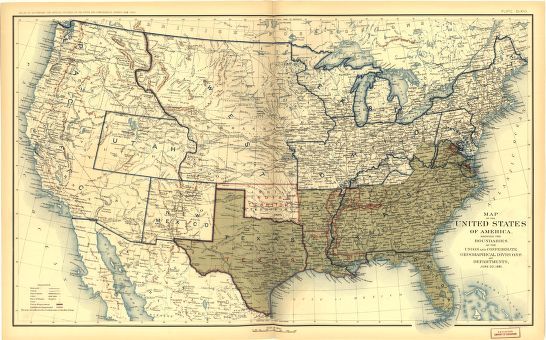 While many communities in the North finally receive confirmation of the Union’s triumph over Atlanta, this day, as decreed by President Abraham Lincoln two days earlier, is a national day of celebration in the United States, following the Union victories at Atlanta and Mobile Bay.
While many communities in the North finally receive confirmation of the Union’s triumph over Atlanta, this day, as decreed by President Abraham Lincoln two days earlier, is a national day of celebration in the United States, following the Union victories at Atlanta and Mobile Bay.
Although Lincoln’s proclamation for this day’s celebratory cannon salutes in Washington was originally in recognition of the victory in Mobile Bay, the day’s festivities are more a celebration of the fall of the critical Southern city of Atlanta. Justly so is the jubilation regarding Atlanta, as Union victory over the Confederacy is now all but assured in this all-too-long war.
Celebrations, on the other hand, are absent in the South. Still stunned over the fall of Atlanta, Confederate officials struggle with how to best proceed in the aftermath. General John Bell Hood, disgraced over his failure to keep the city out of Union hands, has temporarily moved his Army of the Tennessee out of harm’s way. Confederate President Jefferson Davis is considering whether or not relieve the general from command, even as he plots new military strategy. Ultimately, Davis will keep Hood in command and approve of a plan designed to draw Sherman out of Atlanta and into a trap.
Meanwhile, white Southern Baptists increasingly turn their attention to meeting the needs of deceased Confederate soldiers’ orphans, their very actions an acknowledgment of the terrible toll that the war has caused upon the South. This month two churches in Virginia, the Chatham Baptist Church and First Baptist Church of Danville, each pledge to “educate 20 children for the next 12 months.” Within six months, the Chatham congregation is paying tuition for eight orphans.
Sources: “Lincoln Log,” September 5, 1864 (link); John Bell Hood (link) and (link); Jeffrey W. McClurken, Take Care of the Living: Reconstructing Confederate Veteran Families in Virginia, University of Virginia Press, 2009, p. 88 (link)


